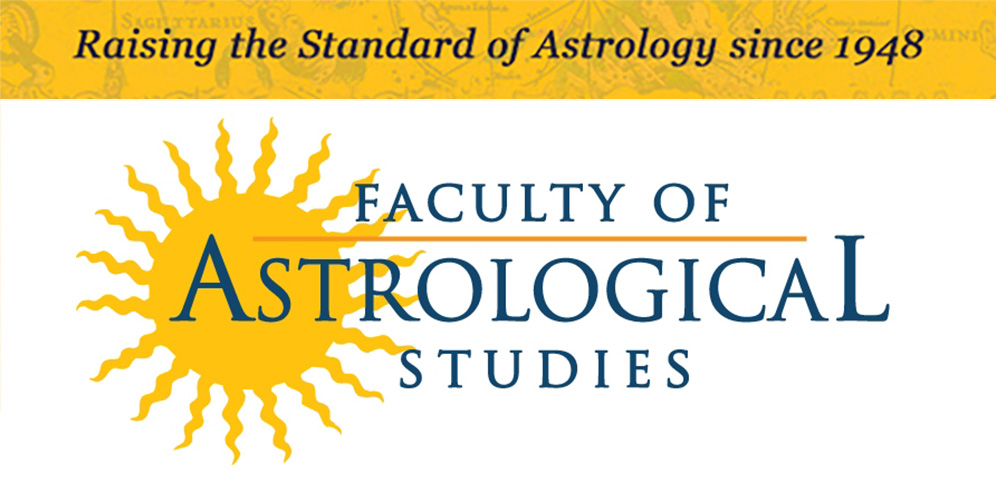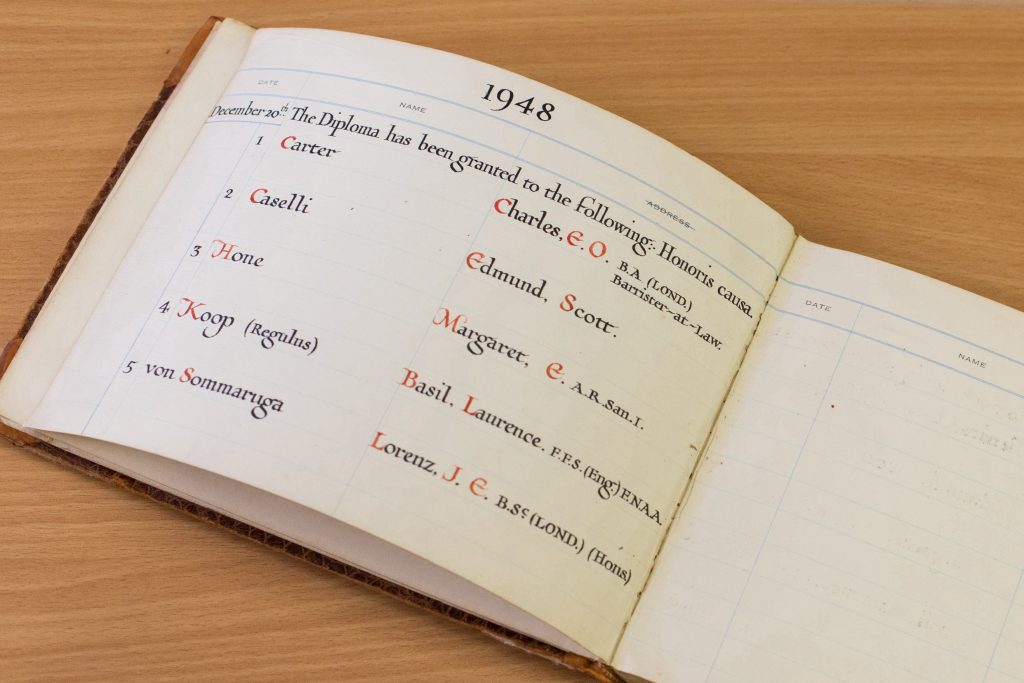
The Birth of the Faculty of Astrological Studies
The Faculty was founded in 1948, at a time when astrologers such as Alan Leo and Dane Rudhyar had already significantly reshaped astrology for the modern era. In 1915, Leo founded the Astrological Lodge of the Theosophical Society, out of which the Faculty later emerged.
At the same time, sun-sign columns, first published in Britain in 1930, had become popular. They increased public awareness of astrology, but nowhere was it possible to study the subject properly, in all its richness and depth. A small group of Lodge members thus proposed that:
‘A body called The Faculty of Astrological Studies, under the auspices of the Astrological Lodge, should be created at the earliest opportunity.’
At a Lodge meeting, at 6 Queen Square in London, the Faculty was born, to be run by five officers, including Charles Carter as its first Principal.
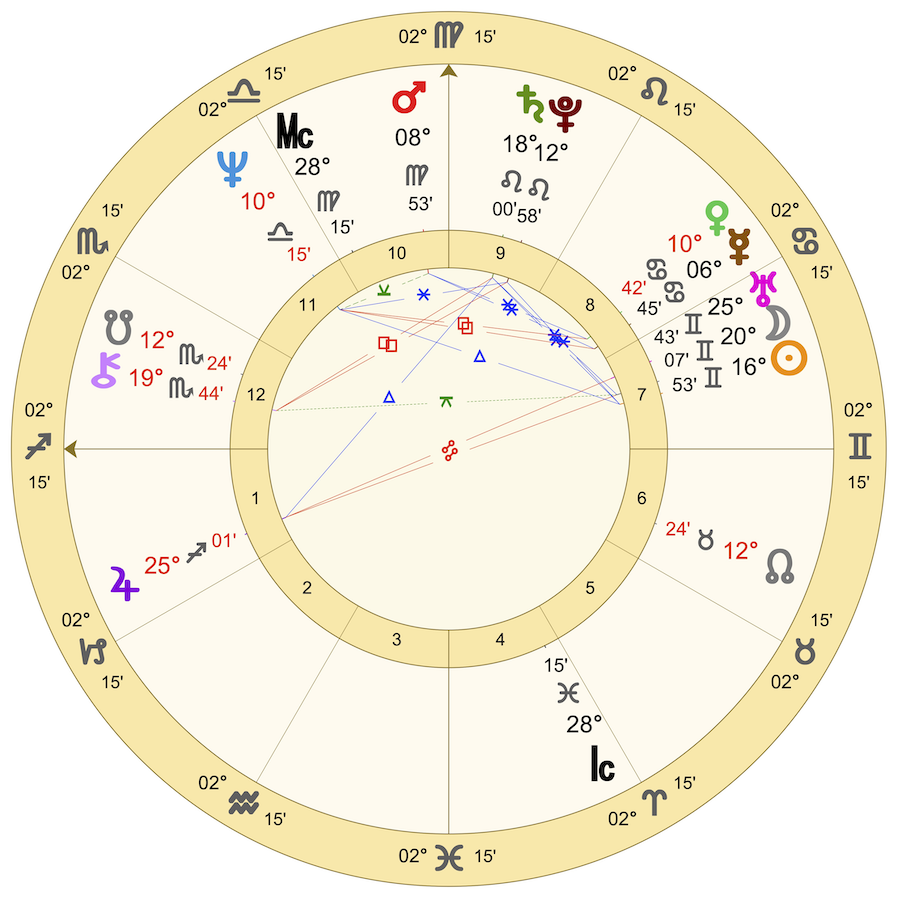
Raising the standard of astrology
In the Prospectus and Brief Syllabus of the Faculty of Astrological Studies, issued in August 1948, the Objects of the Faculty were set out.
‘The Faculty of Astrological Studies has been founded… as a non-profit-making organisation, having as its functions:
- the drawing up of a syllabus of study of astrological subjects of a high standard;
- the instituting of courses of tuition;
- the preparation and holding of examinations in astrology, both of intermediate and final standards.’
The Diploma would thus come to symbolise the attainment of a recognised standard, underpinned by the highest professional values.
As the Faculty’s reputation grew, it was eventually launched as an independent self-governing body. A Constitution was ratified at a meeting that began in London at 7pm on 4th May 1954.
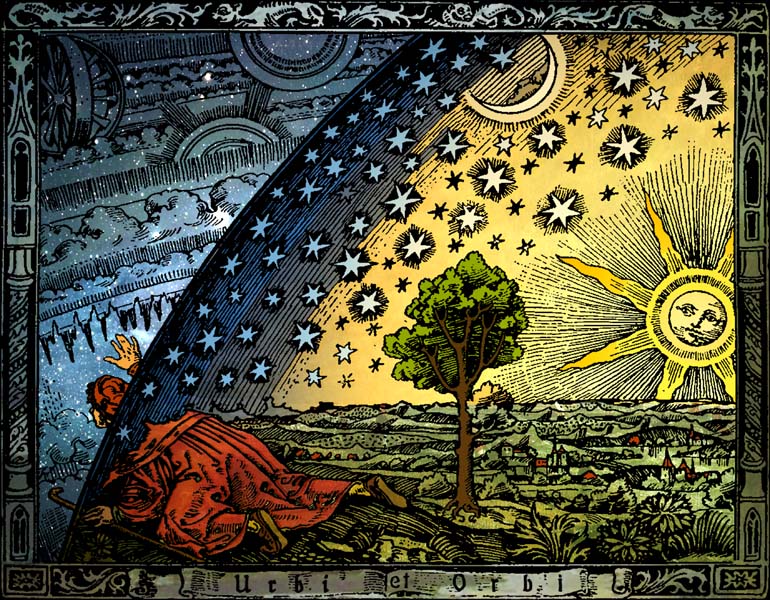
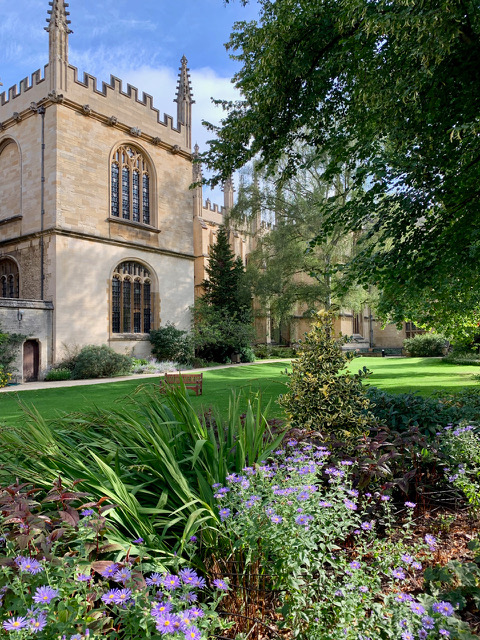
The Summer School
In 1980, the Faculty held its first Summer School at Girton College, Cambridge. The next was at Winchester College in 1987, moving to Oxford in 1988, where it has taken place each year since, first at Jesus College, then Brasenose College, and finally its current home of Exeter College. It has become the Faculty’s flagship event, a unique blend of astrological creativity and learning.
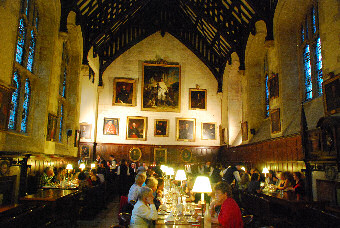
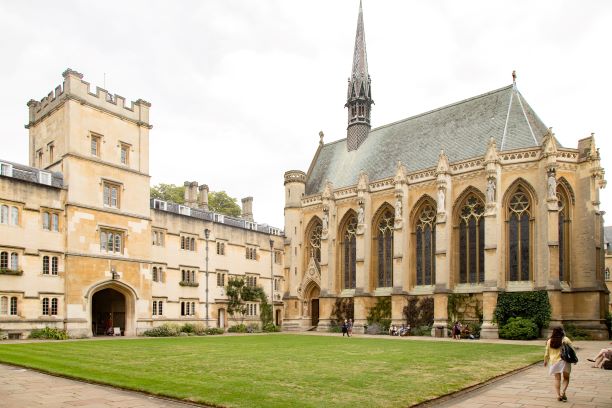
Faculty Council and the Tutor Team
Over the decades, many now-famous astrologers gained their Diplomas, becoming tutors and contributing to the Faculty’s development. Amongst these are Liz Greene (founder and director of the Centre for Psychological Astrology alongside fellow Faculty alumni Howard Sasportas and Charles Harvey), Melanie Reinhart, Mike Harding, Sue Tompkins and Christeen Skinner.
Part of what makes the Faculty special is that it is run by a Council – a group of dedicated Diploma holders held to account by the Faculty’s constitution and working as a team. Our course material is a blend of many different voices. The Faculty belongs to no one, only to itself, and in time each new generation takes its place at the table, teaching, examining and organising its events and functions. Each person brings their own particular skills to the work, ensuring that the Faculty remains a thriving and dynamic force within astrological education.
The Faculty continues to operate, as it has done for decades, as a non-profit making organisation, committed to serving its students, its subscribing Diploma holders and the noble art of astrology itself.
The furture of an ancient art
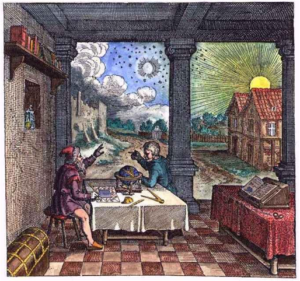 We might ask what kind of astrology the Faculty teaches, since included in its broad syllabus are both ancient and modern techniques, an ancient magical mindset alongside contemporary psychology.
We might ask what kind of astrology the Faculty teaches, since included in its broad syllabus are both ancient and modern techniques, an ancient magical mindset alongside contemporary psychology.
Charles Carter believed there are four attitudes towards astrology: the old traditional attitude, the scientific attitude, the esoteric attitude, and the symbolic attitude – and that the Faculty embodies the symbolic attitude, since astrology is primarily an art of interpretation. This is perhaps just as true today. The Faculty’s approach acknowledges many concepts from Jung’s psychological model but also articulates the ancient idea of magical correspondence between literal/physical and imaginative/psychic modes of experience within the interconnected and ensouled cosmos inherited from Platonic teachings. It teaches the importance of accuracy and rigour, but at the same time acknowledges that astrology is full of paradox and mystery. It teaches interpretation but also invites its students into a fuller engagement with astrology’s symbols as a timeless language of the soul which takes us beyond the simple world of metaphor.
At the heart of the process are the consultancy skills intrinsic to our Diploma, as is the student’s ongoing work of self-reflection and engagement with their own chart and with questions of astrological philosophy. We remain focused firmly on the original founding principles of devoted study and good practice, at the same time embracing the changes that continue to shape astrology. These include the growing importance of astrology as a container for spiritual experience, and recognition of a deeper philosophical strand which links the Faculty into the chain of esoteric thought that has wound its way from Plato and the Neoplatonic and Hermetic traditions down to the present day.
Founders
Charles Carter
Edmund Caselli
Margaret Hone
Basil Koop (also known as Regulus)
Lorenz von Sommaruga
Current Patrons
Robert Hand
Liz Greene
Clare Martin
Julia Parker
Melanie Reinhart
Past Patrons
John M Addey
Baldur Ebertin
Dane Rudhyar
Faculty Principals
Charles Carter, 1948-1954
Margaret Hone, 1954-1969
Jeff Mayo, 1969-1973
Faculty Presidents
Julia Parker, 1973-1979
Martin Freeman, 1979-1986
Lindsay Radermacher, 1986-1995
Ron Gwynn, 1995-1999
Kathleen Barnett (Acting), 1999-2000
Clare Martin, 2000-2009
Carole Taylor, 2009-2012
Laura Andrikopoulos, 2012-2015
Cat Cox, 2015-
Further details
Liz Henty, a Faculty Council Member from 2007 to 2009, was invited to write a history of the Faculty’s early years from 1948 to 1981 as part of the Faculty’s 60th Anniversary celebrations. This is Liz’s individual and copyright-protected research work.
Part 1 (1948-1969)
Part 2 (1970-1981)

